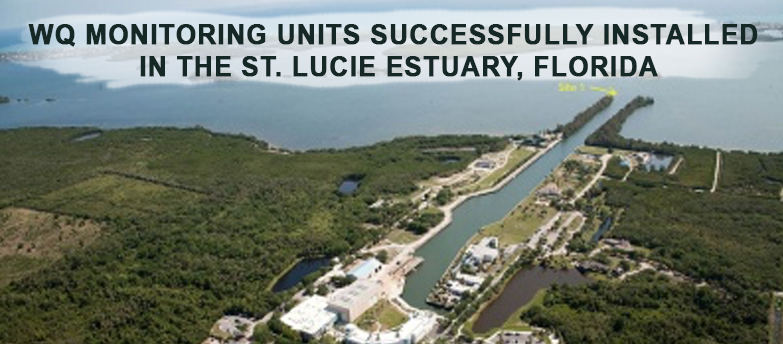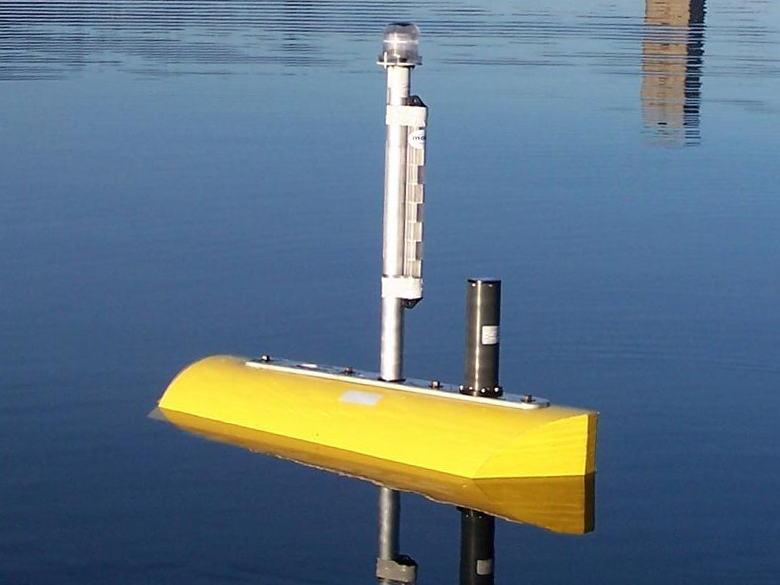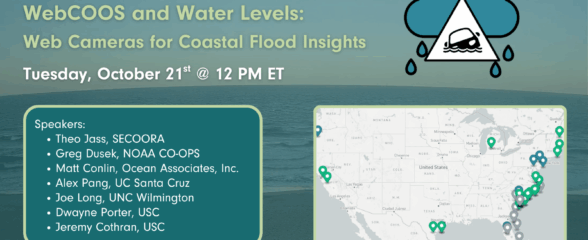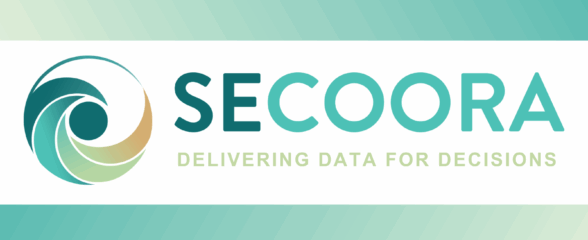
Over the summer, five Land/Ocean Biogeochemical Observatory (LOBO) units have been installed in the Indian River Lagoon and St. Lucie Estuary on the east coast of Florida. The LOBO units provide real-time, high-accuracy and high-resolution water-quality data and archived data via a simple web-based interface. The deployments of the LOBOs is part of the Indian River Lagoon Observatory (IRLO) Program established by FAU's Harbor Branch, a SECOORA member.
 Water quality in the Indian River Lagoon has changed considerably over the last century due to urbanization. The IRLO water quality network is designed to address emerging issues of environmental health in the IRL system by achieving a better understanding of the biodiversity and ecological functions of the lagoon and how they are impacted by the surrounding human population.
Water quality in the Indian River Lagoon has changed considerably over the last century due to urbanization. The IRLO water quality network is designed to address emerging issues of environmental health in the IRL system by achieving a better understanding of the biodiversity and ecological functions of the lagoon and how they are impacted by the surrounding human population.
.jpg)
The deployed LOBOs are measuring temperature, salinity, dissolved oxygen, turbidity, CDOM (colored dissolved organic matter, or more simply, water color), chlorophyll (indicative of algae in the water column), nutrients (phosphate, nitrate), and current speed and direction. LOBOs can collect data 24/7 and allow real-time observation of significant events, such as water discharge, algal blooms, and storm events so that researchers can determine how these events are related to ecosystem change. Data from the LOBO units in the Indian River Lagoon will be integrated into the nationwide Integrated Ocean Observing System (IOOS) through SECOORA, allowing comparative studies both within Florida and in the nation (information found here).
A total of 9 LOBOs are expected to be installed along in the Indian River Lagoon. SECOORA is working with FAU to integrate the IRL data into SECOORA web site. The map to the right shows the proposed locations of the LOBOs. Click here to learn more.
Please contact IRL Principal Investigator – M. Dennis Hanisak,. at dhanisak@fau.edu for more information.
—
All images are credited to FAU
Related news

SECOORA Webinar | WebCOOS and Water Levels: Web Cameras for Coastal Flood Insights
On October 21st at 12 PM ET, SECOORA is hosting a webinar with investigators from the Webcam Coastal Observation System (WebCOOS) project team and the WebCOOS Project Manager. Web cameras are a low-cost technology that can be used to document flooding impacts to coastal communities. Register here.

SECOORA Funding Opportunity Announcement: Letters of Intent Solicitation
SECOORA will submit a coordinated regional proposal in response to the anticipated FY 2026 Implementation of the U.S. Integrated Ocean Observing System (IOOS) funding opportunity. Letters of Intent to be considered for inclusion in SECOORA’s full proposal are due September 9, 2025.

SECOORA Hosts the First Surface Elevation Table (SET) Community of Practice Virtual Workshop
The SECOORA SET Workshop was virtual on July 17, 2025. More than 50 Community of Practice members and stakeholders joined this collaborative workshop to discuss SET monitoring, coastal resilience, and data-driven decision making in the Southeast.